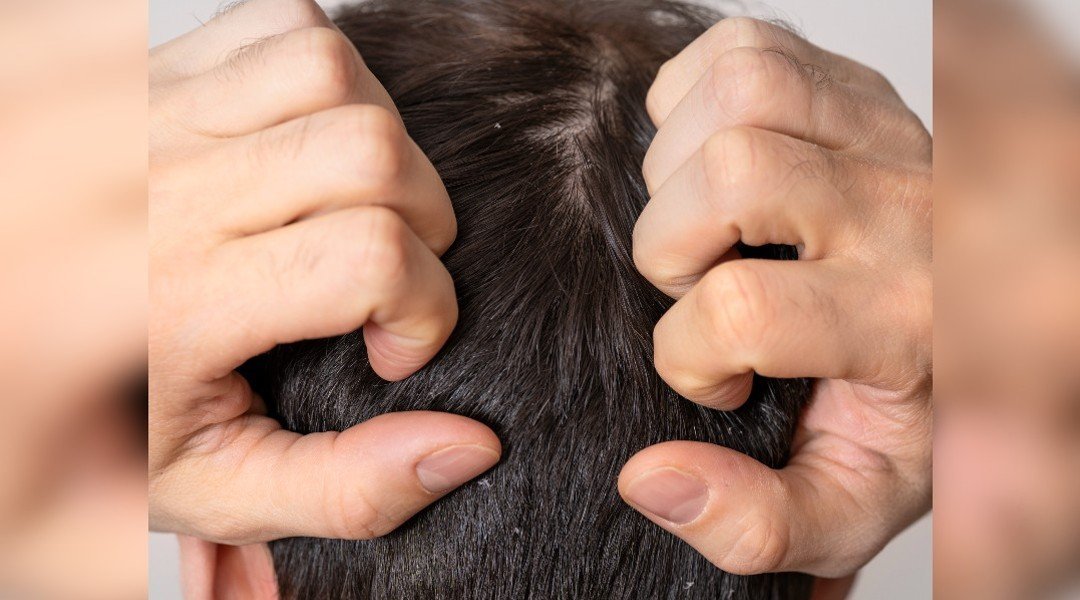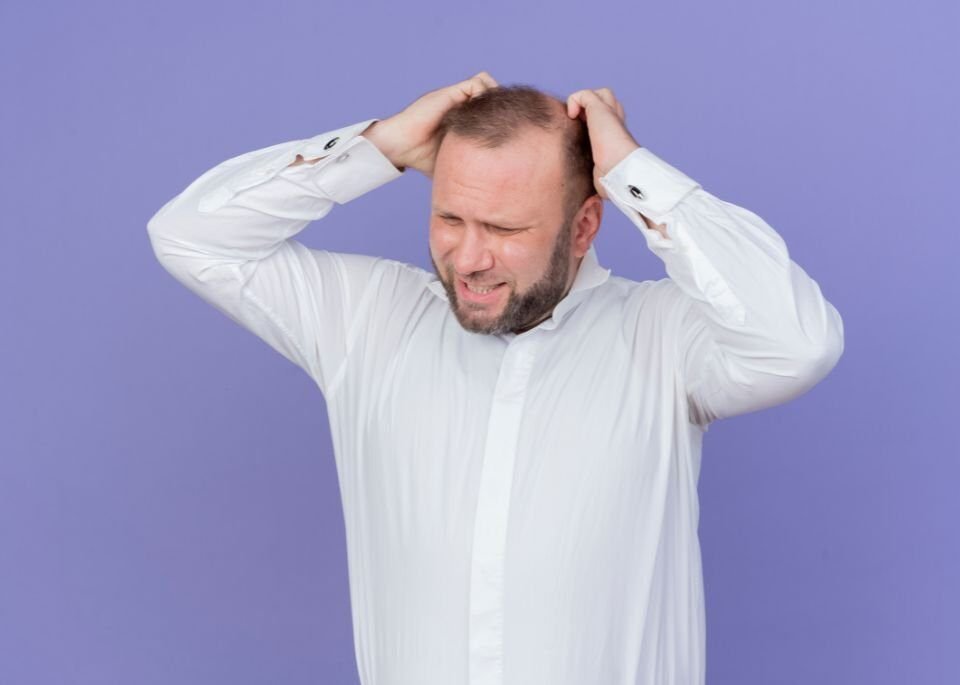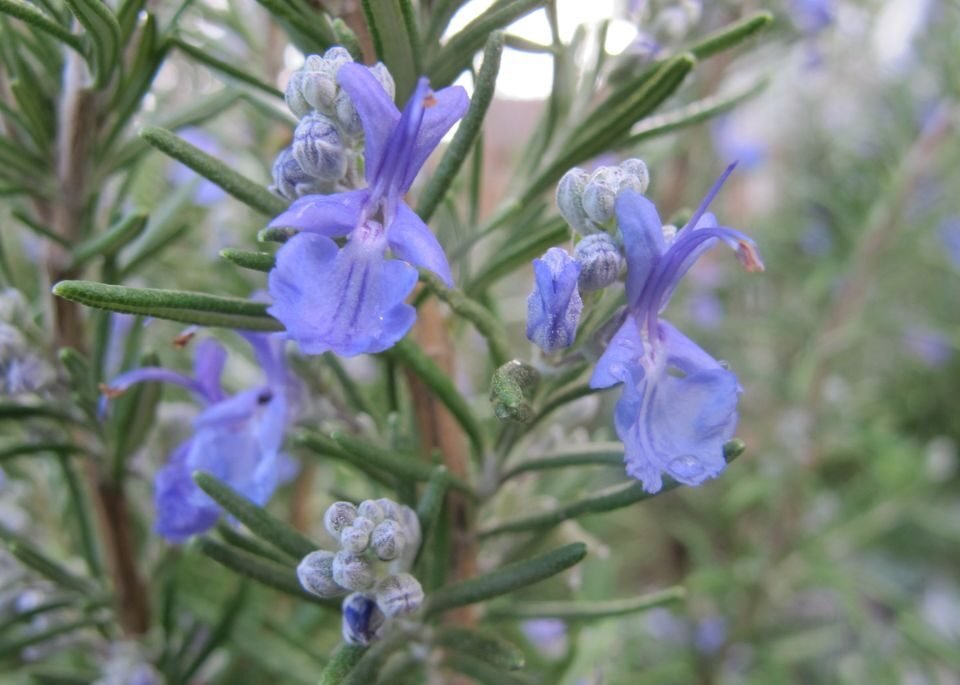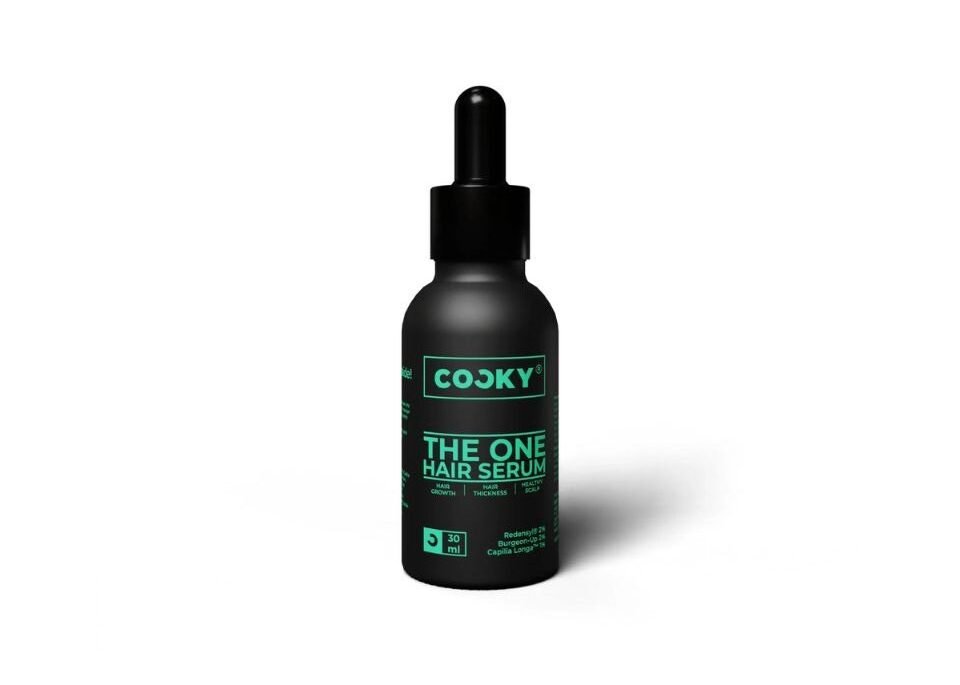
Know How to Check Your Testosterone Level
April 18, 2024
Erectile Dysfunction – Symptoms, Causes and Treatment
May 16, 2024In a world full of misconceptions about wellness and beauty, facts must be distinguished from fiction, particularly regarding the health of our hair and scalp. Three most frequently asked questions that more often than not confound us because of the myths that surround them: Is dandruff contagious? Can lemon remove dandruff? And, does dandruff cause pimples? We are here to guide you toward a healthier scalp. Let’s set out on a myth-busting adventure to discover the reality behind these questions.
An Overview of Dandruff
Dandruff is characterized by flaking and occasionally an itchy scalp. Flakes could appear on your scalp, hair, eyebrows, mustache, or beard. Sebum production, microbial development (especially of the yeast-like fungus Malassezia), and individual skin sensitivity are often the confluence of elements that cause it.
Symptoms of Dandruff
The primary signs of dandruff are flakes and an itchy, scaly scalp. During the autumn and winter months, when the air is dry, white, oily flakes tend to collect in your hair and on your shoulders which causes itchy scalp and increase hairfall. This gets worse when you are sick or stressed.
Other signs and symptoms may consist of:
- erythema, which is red patches on the skin of the scalp, and sometimes on the face
- eyebrow dandruff
- dry flakes on the skin of the face
Why does dandruff occur?
Finding the precise reason for your flaky, itchy scalp might be challenging because dandruff can result from a variety of factors. A few suspected true source offenders are listed below:
- Sebaceous gland secretions, fungal colonization on the skin’s surface, and inadequate shampooing can lead to skin cell accumulation, flaking, and itching. On the other hand, excessive shampooing also leads to a dry flaky scalp causing dandruff.
- Excessive stroking of one’s head hair causes excessive friction on the scalp’s delicate skin causing dandruff.
- A yeast known as Malassezia can irritate your scalp and lead to an overgrowth of skin cells. Various personal care items can trigger contact dermatitis, resulting in a red and irritated scalp.
- Extensive sun exposure
- Excessive pressure on the scalp from headwear
- Contact with dust or dirt
Is Dandruff Contagious?
The idea that dandruff is contagious is among the most pervasive ones. In other words, dandruff is not communicable. You cannot ‘pass it on’ or ‘catch’ it from another person. The underlying factors that create dandruff are specific to each person’s scalp environment and cannot be spread by touch.
Can Lemons Remove Dandruff?
Yes, lemon is a homemade cure for dandruff that has been handed down through the ages. Given their high vitamin C content and antifungal qualities, lemons can help reduce dandruff to some extent. Lemon juice’s acidic composition helps to regulate the pH of the scalp, which may inhibit the growth of fungi that cause dandruff. It’s not a one-size-fits-all treatment, though, and you should use caution when using it too much as it might irritate your scalp, especially if you have sensitive skin.
Does Dandruff Cause Pimples?
There isn’t a direct connection of how our skin reacts to dandruff. However, dandruff flakes can block pores and hair follicles, particularly in the area near the scalp, brows, and forehead, which can result in acne or pimples. In addition, acne may arise as a result of overproduction of oil linked to dandruff. Although it isn’t the direct cause of pimples, dandruff can foster certain environments that encourage their development.
How to Prevent Dandruff?
The following are some suggestions for preventing dandruff:
- Maintain proper hygiene: Try your hardest not to touch your scalp, especially if it’s itchy already. Irritation can get out of control when scratched. In addition to adding dirt to the mix when you touch and scratch, this can exacerbate dandruff.
- Find the ideal shampooing ratio for your hair type: To keep oils at bay, shampoo your hair frequently enough. However, avoid using too many products on your hair as this might irritate the scalp.
- Reduce stress: For some people, stress can worsen dandruff. Although stress does not directly cause Malassezia to grow on your scalp, stress can weaken your immune system. Relax and do your scalp a favor. Consider going for a healing walk or doing some yoga.
- Get Fresh Air: Studies indicate that frequent outdoor exposure, particularly in areas with fresher air, can help minimize sebum accumulation on the scalp.
- Give your scalp a massage: Massage could lessen the signs of dandruff.
- Give those locks a brush: At least twice a day, brush your hair when it’s damp but not wet.
- Reduce the amount of friction: Wearing hats and scarves is discouraged, especially when they are made of synthetic materials.
By busting the myths surrounding dandruff, we can see that, despite not being communicable, it can be effectively managed with knowledge of its causes and the adoption of proper care practices. Although they’re not always effective, home treatments like lemon can provide some relief. Furthermore, although dandruff doesn’t directly cause pimples, it might foster the circumstances that encourage their development. You can keep your scalp healthy and free of dandruff by adopting a holistic approach to scalp care that incorporates both natural and medical remedies
FAQs
What is the main cause of dandruff?
Dandruff can result from several factors, such as greasy, irritated, or dry skin, Malassezia is a yeast-like fungus that feeds on the oils found on most adult scalps.
How can I stop dandruff?
Wash your hair frequently if you have an oily scalp. For instance, you might need to use your dandruff shampoo twice a week in addition to shampooing every day. If your hair is naturally oily, curly, or coarse, wash it as needed and, if tolerated, use your dandruff shampoo once a week.
Is coconut oil good for dandruff? Dandruff can be naturally treated with coconut oil. Although using coconut oil in hair or skin care products—or even just coconut oil—on your scalp is generally safe, it’s a good idea to do a patch test first to be sure you don’t have any sensitivities.




